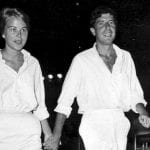Greg’s Grab Bag – The Kings of Memphis: Elvis & Pro Wrestling
Memphis is known for many things, a great deal of which are rooted in pop culture. Three releases (a CD, a DVD and a book) showcase two of the more prominent cultural icons forever linked with this great southern city – Elvis and professional wrestling.
Elvis Presley – Recorded Live On Stage In Memphis (Legacy Edition)
Legacy Recordings has been on a hot streak with Elvis Presley’s back catalog. For years, the respected reissues label has been putting out a steady stream of top-notch releases, including studio box sets and expanded Legacy Edition versions of popular recordings. That trend continues with the two-disc edition of Recorded Live On Stage In Memphis, a live collection originally released as a single LP in 1974.
Recorded on March 20, 1974 at the Mid-South Coliseum, a 10,000+ seat arena that was once considered “The Entertainment Capital of the Mid-South,” this show and four others from a few days prior at the same venue mark the first Elvis concerts in his hometown since 1961. Needless to say, the crowd was excited to see its most famous neighbor in action and you can hear that exuberance in this newly remixed and remastered recording.
Elvis and the TCB Band are in fine form as they plow through a 22-song set that includes an eclectic mix of country, gospel, old hits, new songs, a few medleys and the ever-present “An American Trilogy” by Mickey Newberry.
Of particularly note here is the great rendition of the Kris Kristofferson classic “Why Me Lord” featuring the sonorous lead vocals of J.D. Sumner. Elvis belts out the chorus with backing support from Sumners’ vocal group, The Stamps. This is immediately followed by a dramatic take on the gospel standard “How Great Thou Art,” which again features contributions from Sumner and The Stamps.
In order to make this an expanded Legacy Edition release, the label added a full second disc of bonus material including the complete March 18 show from the Richmond Coliseum in Virginia. According to the liner notes, this show was recorded as a test for the Memphis recording two days later.
Although the set list is nearly identical to the Memphis show, this is a completely different recording due to the heavy reverb effect Elvis favored. That sound is pervasive throughout the recording and brings to mind the echoey acoustics often associated with cavernous arenas.
In addition to the two complete live shows, this set is rounded out with some rehearsal recordings from RCA Studios in Hollywood on August 16, 1974. Elvis was in the studio preparing for a two-week run of shows at the Hilton Hotel in Las Vegas and the five songs included here give a snapshot of the prepping process.
Even though these recordings were not originally intended for use on recordings, they are very enjoyable thanks to a laid back feel and minimal accompaniment. The mellow country ballad “Good Time Charlie’s Got The Blues,” the somber “Softly As You Leave” and the gorgeous “Twelfth Of Never” all excel in this format.
Memphis Heat: The True Story Of Memphis Wrasslin’
Although Elvis may be Memphis’ favorite son, he wasn’t the only king in town. Jerry “The King” Lawler, a professional wrestling icon for more than 40 years, came to prominence as part of a group of wrestlers that plied their trade in the Memphis territory from the ‘60s through the ‘80s. Thanks to both local television exposure and a ravenous fan base, this group soared to amazing heights of popularity over the years, consistently selling out shows at the same Mid-South Coliseum where Elvis recorded his live album.
Memphis Heat: The True Story Of Memphis Wrasslin’, a documentary film which was recently released on DVD, showcases the world of professional wrestling in Memphis during those formative years and profiles the characters, including Lawler, who made it the must-see sporting attraction in town.
Directed by Chad Schaffler and inspired by Ron Hall’s Sputnik, Masked Men, And Midgets: The Early Days Of Memphis Wrestling, a coffee table book chronicling the places and personalities behind Memphis wrestling from the ‘50s through the ‘70s, this documentary both recaps the history of wrestling in the region and profiles the in-ring and real life personas (wrestlers, managers, promoters, bookers and others) that shaped and steered the sport.
Two things really make Memphis Heat shine – interviews with the people that made Memphis wrestling as big as it was and a wealth of in-ring and studio footage.
Often, films chronicling the past rely on modern-day historians and subject matter experts to move along the narrative. Luckily, Schaffler was able to track down many of the key players in Memphis wrestling to give first-person accounts from the people who lived it. This is especially fortunate since several of the people featured here have since passed away.
The personal stories of participants like Lawler, “Superstar” Bill Dundee, Jerry Jarrett, Jimmy Hart (better known nationally for his days in the WWF as the megaphone-wielding and hyperkinetic manager, “The Mouth of the South”) and the outspoken and memorable wrestling innovator Jackie Fargo are all notable and carry the narrative throughout.
In addition to these recollections, Memphis Heat includes an abundance of historical footage and photographs. Clips from Mid-South Coliseum events demonstrate the overwhelming popularity of wrestling in that city and convey just how passionate and enraptured fans were with the action in the ring, while vintage broadcast footage from local television network broadcasts gives you a sense of both the stories being told and the hard-fought rivalries playing out through the matches.
Memphis Heat: The True Story Of Memphis Wrasslin’ is a fast-paced and interesting watch from start to finish – one that can be equally enjoyed by professional wrestling fans and those who just want to learn more about this fascinating pop culture phenomena from Memphis’ history.
Sputnik, Masked Men, And Midgets: The Early Days Of Memphis Wrestling by Ron Hall
Anyone finding Memphis Heat enjoyable and wishing to take a deeper dive into the storied history of professional wrestling in Memphis would be well-served by checking out the coffee table book that inspired the film. Memphis historian Ron Hall’s nearly 200-page tome is an amazing resource of images, newspaper clippings, in-ring action shots and memorabilia items related to the sport’s history in this city.
While the book touches on the big personalities featured in the documentary (Lawler, Fargo, Dundee, etc…), it is most remarkable for the huge collection of photos featuring the lesser-known athletes who wrestled in Memphis. Of particular note are the chapters profiling minority wrestling groups like African Americans, little people and women.
The book also shines a light on the interesting life of Sputnik Monroe, one of the brightest stars in Memphis wrestling. In addition to being a champion in the ring, Monroe was also a champion for civil rights. At the height of his popularity, Monroe refused to wrestle in the Ellis Auditorium (a major Memphis wrestling venue in the days before the Mid-South Coliseum) unless the venue disregarded its “colored” section policy and allowed black patrons to sit anywhere in the arena.
Additionally, a 1960 newspaper clipping documents Monroe’s disorderly conduct arrest for drinking beer in a “negro café.” The inclusion of this local news item nicely frames both Monroe’s affinity for the local African-American community and the ever-present race tension of the times.
Bringing this Memphis feature full-circle, Hall also includes a 1955 photo of Elvis Presley, backed by Scotty Moore (guitar) and Bill Black (upright bass), performing in-ring at Ellis Auditorium. Hall offers insight from long-time Memphis wrestling fixture Guy Coffey that Elvis was a big wrestling fan and would enter the Mid-South Coliseum through the back door after the lights went down in order to watch the matches. Coffey also explained that Elvis was fond of the wrestlers and even dated the performer known as Penny Banner.
Until next time, enjoy Memphis!






